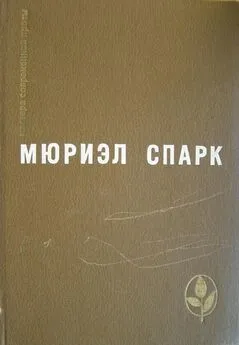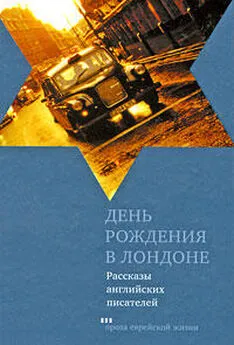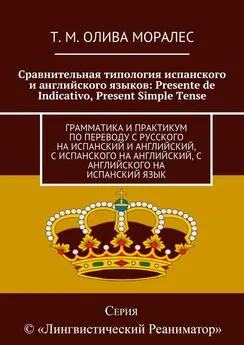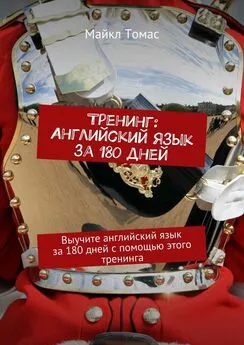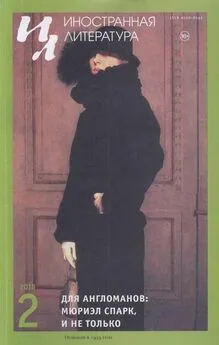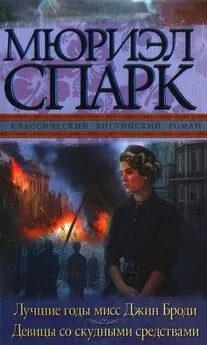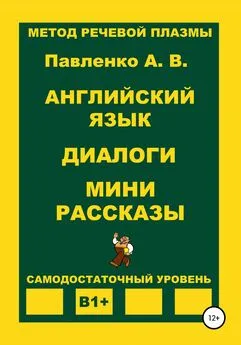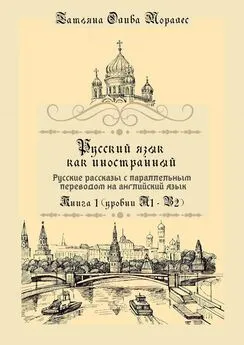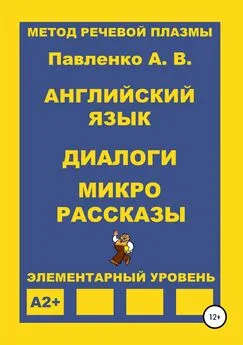Мюриэль Спарк - Английский язык с Мюриэль Спарк (рассказы)
- Название:Английский язык с Мюриэль Спарк (рассказы)
- Автор:
- Жанр:
- Издательство:неизвестно
- Год:неизвестен
- ISBN:нет данных
- Рейтинг:
- Избранное:Добавить в избранное
-
Отзывы:
-
Ваша оценка:
Мюриэль Спарк - Английский язык с Мюриэль Спарк (рассказы) краткое содержание
Английский язык с Мюриэль Спарк (рассказы) - читать онлайн бесплатно полную версию (весь текст целиком)
Интервал:
Закладка:
When I looked out of the window again (когда я снова выглянула из окна), I saw that the blind of Herr Stroh's room (я увидела, что штора в комнате господина Строха) had been pulled down (была опущена), and so it remained for the rest of my stay (и она осталась опущенной: «такой» до конца моего пребывания).
Meantime (тем временем), I went out to post my letters in the box opposite our hotel (я вышла, чтобы опустить свои письма в почтовый ящик, расположенный напротив нашего отеля; topost— отправлять по почте, опускать в почтовый ящик;box— ящик ), across the path (через тропинку). The sun had come out more strongly (солнце поднялось выше: «сильнее, интенсивнее»), and Herr Stroh stood in his doorway (и господин Строх стоял в /своих/ дверях) blinking up at the roof of the Guest-house Lublonitsch (щурясь от солнца, он смотрел на крышу пансиона Люблонич; toblink— мигать, моргать, щуриться, ослеплять ). He was engrossed (он был поглощен; toengross— завладевать вниманием, поглощать ), he did not notice me at all (он совершенно меня не замечал).
mustn't ['mAs(q)nt] path [pQ: T] doorway ['dO: weI]
"But she hasn't been across to see him. I've been watching the house."
"No. Frau Chef doesn't visit with him. But don't worry; he knows all right that he mustn't annoy our guests."
When I looked out of the window again, I saw that the blind of Herr Stroh's room had been pulled down, and so it remained for the rest of my stay.
Meantime, I went out to post my letters in the box opposite our hotel, across the path. The sun had come out more strongly, and Herr Stroh stood in his doorway blinking up at the roof of the Guest-house Lublonitsch. He was engrossed; he did not notice me at all.
I didn't want to draw his attention (я не хотела привлекать его внимание; attention— внимание, внимательность, забота; todrawsmb’sattention— обращать чье-либо внимание ) by following the line of his gaze (посмотрев туда же, куда смотрел и он: «следуя в направлении: «линии» его пристального взгляда») but I was curious (но мне было любопытно /узнать/; curious— любознательный, пытливый, любопытный ) as to what held him staring so trancelike up at our roof (что же именно заставляло его: «удерживало» в состоянии, подобном трансу, смотреть пристально /куда-то/ вверх на нашу крышу; trance— транс, состояние экстаза ). On my way back from the postbox (на /моем/ обратном пути от почтового ящика) I saw what it was (я увидела, что именно это было).
Like most of the roofs in that province (как и у большинства крыш в той провинции ;province— область, провинция ), the Lublonitsch roof had a railed ledge (у крыши /пансиона/ Люблонич был поперечный карниз) running several inches above the eaves (идущий: «бегущий» несколькими дюймами над свесом крыши), for the purpose of preventing the snow from falling in heavy thumps during the winter (он предназначался для предохранения от снега, падающего с тяжелыми глухими ударами во время зимы; purpose— цель, намерение, замысел, toprevent— предотвращать, не допускать, tofall— падать ). On this ledge (на этом самом карнизе), just below an attic window (как раз под чердачным окном), stood the gold-and-rose ormolu clock (стояли золото-розовые часы из золоченой бронзы) that I had seen in Frau Lublonitsch's splendid bedroom (те самые, что я видела в великолепной спальне фрау Люблонич).
I turned the comer (я как раз повернула за угол) just as Herr Stroh gave up his gazing (когда господин Строх перестал: «бросил» смотреть; togiveup— отказаться, бросить, оставить ); he went indoors (он зашел в дом), sullen and bent (угрюмый и сгорбленный; bent— изогнутый, кривой, tobend— гнуть, сгибать, наклоняться ). Two carloads of people (пассажиры двух автобусов: «два вагона людей») who had moved into the hotel that morning (которые вселились: «въехали» в отель тем утром) were now moving out (теперь выезжали) shifting their baggage (перенося свой багаж; toshift— перемещать, передвигать, перекладывать ) with speed (быстро: «со скоростью») and the signs of a glad departure (и всеми признаками того, что они рады были откланяться; glad— довольный, радостный, departure— отъезд, уход, отбытие, отправление ). I knew that his house was nearly empty (я знала, что его дом был почти пустым).
curious ['kjV(q)rIqs] eaves [i: vz] indoors ["In'dO: z] baggage ['bxgIG]
I didn't want to draw his attention by following the line of his gaze but I was curious as to what held him staring so trancelike up at our roof. On my way back from the postbox I saw what it was.
Like most of the roofs in that province, the Lublonitsch roof had a railed ledge running several inches above the eaves, for the purpose of preventing the snow from falling in heavy thumps during the winter. On this ledge, just below an attic window, stood the gold-and-rose ormolu clock that I had seen in Frau Lublonitsch's splendid bedroom.
I turned the comer just as Herr Stroh gave up his gazing; he went indoors, sullen and bent. Two carloads of people who had moved into the hotel that morning were now moving out shifting their baggage with speed and the signs of a glad departure. I knew that his house was nearly empty.
Before supper (перед ужином), I walked past the Hotel Stroh (я прогулялась мимо отеля Строха) and down across the bridge to the cafй (и вниз, через мостик к кафе; bridge — мост, мостик, перегородка ). There were no other customers in the place (других посетителей не было /в кафе/; customer— покупатель, заказчик, потребитель ). The proprietor brought the harsh gin (владелец принес мне терпкий джин; proprietor— собственник, хозяин, tobring— приносить, привозить, доставать ) that was the local speciality (который был фирменным местным напитком; speciality— отличительная характерная черта, фирменный товар ) over to my usual table (к моему обычному месту за столом) and I sipped it while I waited for someone to come (и я потягивала его, /пока/ ожидая, что кто-нибудь появится: «придет»; tosip— пить маленькими глотками, потягивать ). I did not have to wait long (мне не пришлось долго ждать), for two local women came in and ordered ices (так как вошли две местные жительницы и заказали мороженое; toorder— приказывать, заказывать ), as many of them did on their way home (как многие из них делали по дороге домой) from work in the village shops (с работы, в деревенских магазинах; village— деревня, село, поселок ). They held the long spoons (они держали длинные ложки) in their rough, knobbly hands (в своих: «их» грубых, бугристых руках; knob— шишка, выпуклость ) and talked (и разговаривали), while the owner of the cafй came and sat with them (в то время как собственник кафе приходил и садился с ними) to exchange the news of the day (чтобы обменяться новостями дня).
proprietor [prq'praIqtq] speciality ["speSI'xlItI] women ['wImIn] ices ['aIsIz]
rough [rAf] knobbly ['nOblI]
Before supper, I walked past the Hotel Stroh and down across the bridge to the cafe. There were no other customers in the place. The proprietor brought the harsh gin that was the localspecialityover to my usual table and I sipped it while I waited for someone to come. I did not have to wait long, for two local women came in and ordered ices, as many of them did on their way home from work in the village shops. They held the long spoons in their rough,knobblyhands and talked, while the owner of the cafй came and sat with them to exchange the news of the day.
"Herr Stroh has been defying Frau Lublonitsch (господин Строх бросил вызов фрау Люблонич; to defy — вызывать, открытонеповиноваться, презирать )," one of the women said (сказала одна из женщин).
"Not again (что, опять: «не снова ли»)?"
"He's been offending her tourists (он обижал ее туристов; to offend — обижать, оскорблять )."
"Dirty old Peeping Tom (грязный старый соглядатай; PeepingTom— любопытный Том, человек с нездоровым любопытством )."
"He only does it to annoy Frau Lublonitsch (он это делает только для того, чтобы досадить фрау Люблонич).''
"I saw the clock on the roof (я видела часы на крыше). I saw (я видела) —
"Stroh is finished (со Строхом покончено; tofinish— кончать, заканчивать, покончить ), he (он) —
"Which clock (какие часы)?"
"What she bought from him last winter (те, что она выкупила у него в прошлую зиму; tobuy(bought,bought)out— выкупать ) when he was hard up (когда он был совсем без денег; hardup— испытывающий денежные затруднения, в стесненных обстоятельствах ). All red and gold (такие /все/ красные с золотом), like an altarpiece (как надалтарное украшение). A beautiful clock (очень красивые часы) — it was his grandfather's (они принадлежали его дедушке) when things were different (когда все было по-другому; different — различный, иной, другой, особый )."
Читать дальшеИнтервал:
Закладка:

